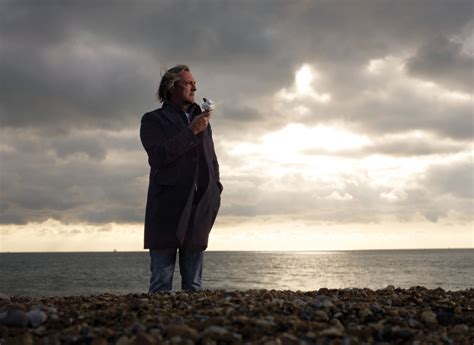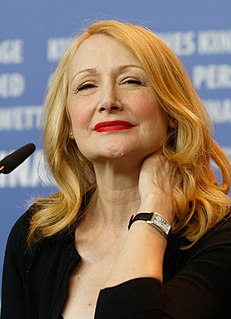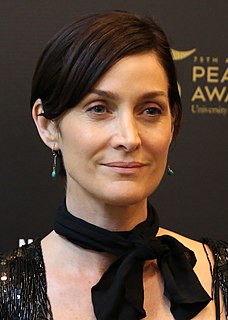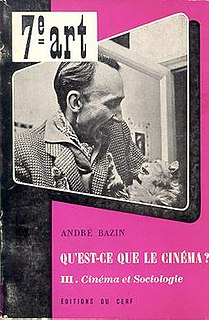A Quote by Nigel Cole
I really ought to try and make a film that's a bit more cynical. But I don't think I'd know how to do it. I think what it is, is that if you're a film director, you're basically there because you enjoy manipulating people's emotions.
Related Quotes
I'm planning some films in the U.K., and it will have pros and cons. It takes a lot more time to set up a film in the U.K., because you can't rely on much. In Greece, friends show up and bring what they can and you make the film. Well, that's a bit simpler than how it really is. But when you make a film with proper industries, it takes more time to synch all these things.
I'm ready for all forms of dialogue about the film The Conquest. There will be a lot of political talk, but I don't think the film itself will be scandalous. For the French, there are so many emotions relating to Sarkozy and politicians in general that I think the film will generate a lot of passion, whether it be negative or positive. Above all, it's a fictional film. It was important not to make a documentary and to really pay attention to the images. From the choice of the actors to the mise en scene, the film is completely cinematographic. It's not just a boring political movie.
At the core, I am an actress. And I think, in a way, that's a good thing in that I am, I think, empathetic and sympathetic to the film. I would never pretend to have the discerning and acute critical eye that a lot of the great critics in our business do have. I don't look at it as being a critic or placing a judgment on a film, and I do think, how do you decide which film is best anyway? It's always a little bit of a mixed bag. But, I think it is just a collective group of people coming together to honor the work of an artist - that's how I think of it.
Well, I think there was a time when I first started that there was such a thing called 'a woman's film' and there were certain scripts that women would make. But I think that's changed a lot now. I think that if a woman director walks into a room with a script, it doesn't really matter what the subject matter is, or the genre is, so long as the financiers feel that the woman has the skills to make the film.
Me and Kirby are very collaborative and it changes from film to film. The first project we worked on together, Derrida, we co-directed. The last film Outrage, I was the producer and he was the director. This film was much more of a collaboration - he is the director and I am the producer - but this is a film by both of us.
To spend any time with someone who is among the top five film composers of the last 50 years is pure gold dust. I mean, not necessarily stylistically, because everyone is different in what their music sounds like, but the approach and how to look at a film, how to think about a film, how to decide what you want to do, how to think about characters, how to think about art, how to think about narrative, how to liaise with producers, how to liaise with directors.
Today we can say that at last the director writes the film. The image--its plastic composition and the way it is set in time, because it is founded on a much higher degree of realism--has at its disposal more means of manipulating reality and of modifying it from within. The film-maker is no longer the competitor of the painter and the playwright, he is, at last the equal of the novelist
As soon as you start making a film that's expensive then the studio wants total control over all elements of it because they want to get all their money back. If you make a smaller film you can try a lot more things because you can have control over it and not just be a hired director. The lower the budget the more freedom you have.
The first thing I say when people ask what's the difference [between doing TV and film], is that film has an ending and TV doesn't. When I write a film, all I think about is where the thing ends and how to get the audience there. And in television, it can't end. You need the audience to return the next week. It kind of shifts the drive of the story. But I find that more as a writer than as a director.






































